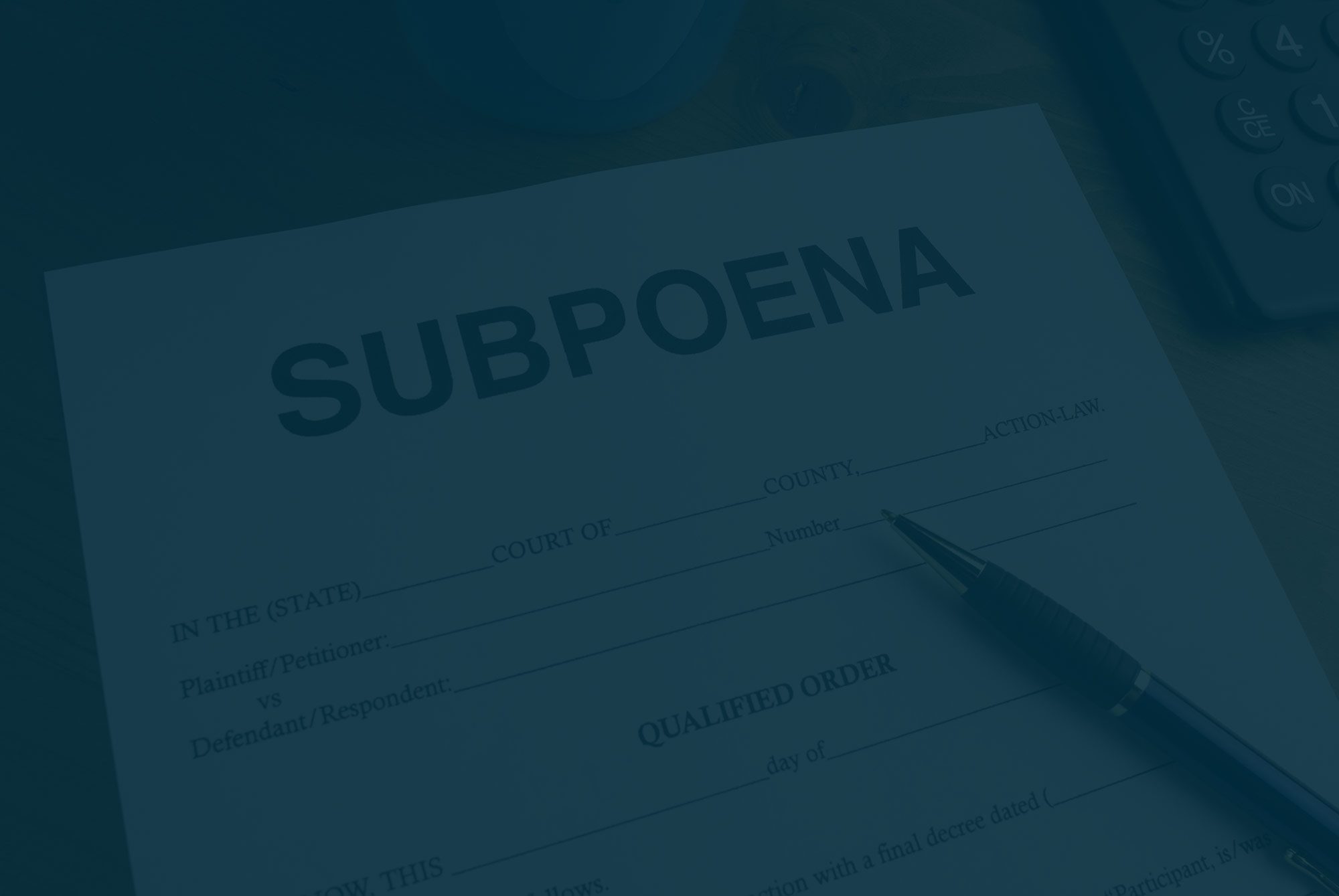“Subpoena duces tecum” is a legal request to produce documents for a court case. Creating, serving, and following up on these types of record requests require a different level of sensitivity in comparison to requesting records with a HIPAA-compliant authorization.
To avoid potential pitfalls, the following best practices are recommended:
Request Record Types Separately
Larger medical facilities often maintain separate departments for individual record types – such as medical, billing, and radiology. Therefore, if an individual includes “any and all records” language within the subpoena, he or she runs the risk of not receiving records from certain departments. Requesting record types separately, then, ensures that record requests are received by the correct department and individuals are provided the full record file requested.
Include Dates of Service
Including “any and all” language on the subpoena document will usually result in larger custodian of records fees, especially if the patient/plaintiff has been treated frequently over the years. Instead, include dates of service within the subpoena request. Doing so will limit the number of pages received and result in a lower invoice amount from the custodian of records.
Expect Delays
Due to the ramifications of COVID-19 within the legal system, delays are becoming more commonplace – especially in the larger medical facilities. This is mainly due to the overall uptick in records being requested by subpoena, as well as a large backlog of record requests to be filled. Therefore, the earlier a subpoena can be prepared and issued, the better.
Subpoena vs Authorization
Generally, requesting records using a HIPAA-compliant authorization document is the more cost-effective option, but if legal teams have upcoming deadlines and/or are nearing the end of discovery, issuing a subpoena is recommended due to the quicker turnaround time. With a federal subpoena, records can typically be collected within 14 days, whereas state subpoenas, on average, currently see 2-3 days’ faster turnaround time than with the standard 30-45-day turnaround time of an authorization. This is because a request for records using a subpoena takes precedence over a request using an authorization, resulting in it being completed and closed more quickly.
MRC routinely researches, prepares, and serves subpoenas for both state and federal litigation. To learn more about our subpoena support services, please visit www.mrchouston.com.


